9 nuances in the work of an indie developer, which no one told me about
- Transfer
We continue to translate foreign articles on creating games on the blog of the program "Management of gaming Internet projects . " This time, the creator of the game SanctuaryRPG , Raghav Mathur will tell us about some of the nuances in the work of the indie developer .

When Daniel and I started working on SanctuaryRPG, I had no idea what it means to be an indie game producer. Honestly, I don’t think any of our team suggested that SanctuaryRPG would ever be anything more than a multi-download hobby project. Three years, one hundred thousand lines of code, two publications in the Hunble Bundle set and five hundred thousand downloads later, I can say with confidence that we were wrong.
Every developer has the potential for success. Many people, looking at influential opinion leaders such as, for example, Rami Ismail (Nuclear Throne, Luftrausers) and Jonathan Blow (Braid, The Witness), think that developing indie games is an awesome activity: you start working on video games and making millions of dollars. Sounds easy and fun, huh? But this is not at all true.
Well, not really. You start working on video games, and if you work hard, you will probably make millions of dollars. Maybe. Between stages called “I want to make a video game” and “I am going to invest the profits from my fifth game into the sixth” a lot of work is going on that people do not realize. Many blog posts have been written about the difficulties of programming, the need for testing and the importance of marketing. In this article I want to talk about several other aspects of the profession - nine, to be precise - that are not often talked about. I hope that you draw something for yourself from my observations, regardless of whether you are a novice developer, seeking advice or an experienced nostalgic veteran.
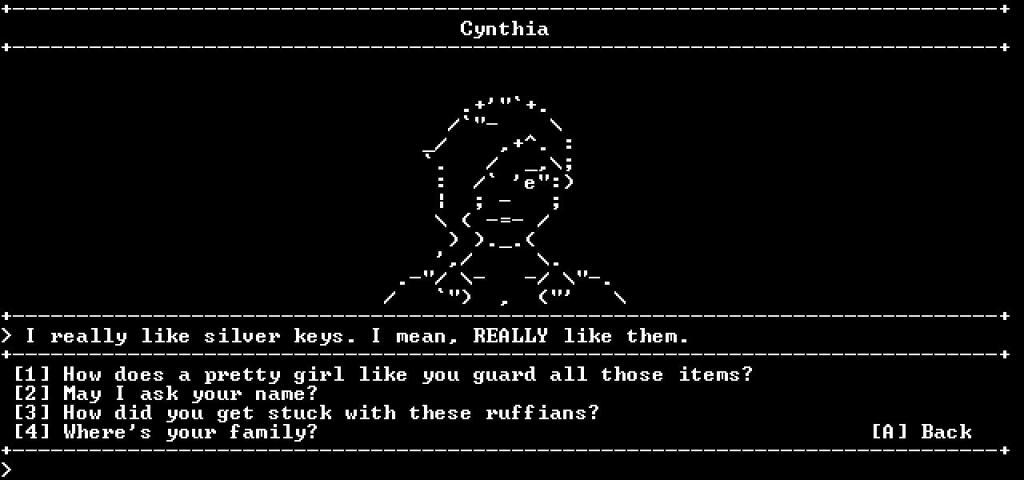
Daniel and I started working on the project and spent 400 hours on it. Here is what we have achieved after these hours:
That is all we have done. For 400 hours. Four hundred hours. If you work from Monday to Friday from 9:00 to 17:00, it will take 10 weeks. This is more than three months of work. And all we could show was a landing and a skeleton in a crude prototype. If we continued to work on the project, then perhaps we would have to wait another 3 to 6 months before we would receive the game, and about 6-12 months before it began to make money.
You will have to admit this fact: programming is very difficult. Especially programming in games. If you are working on a larger project, with a time frame of 12-18 or more months, do not wait too soon for playable demos that also look beautiful. Concept development, team building, organization, programming, rendering, game design and marketing - all this takes a lot of time. When planning to make an indie game, you should have an idea of how it should turn out at the end of the full development cycle. If you do not have what you can rely on, which makes you remain motivated to the end, you will inevitably burn out.
Man needs instant rewards. When a reward is set aside for months or years, it goes against our natural desires, and it is very difficult to fight innate instincts. Working on shorter projects or projects where you can create a prototype very quickly will allow you to see the fruits of your labor faster and more often. Watching how the game is going before your very eyes motivates an indie developer. Observing a pile of lines of code, while not having anything that could be shown, is not so motivating.
The ability to feel comfortable on a long-term project and stay motivated throughout the process will allow you to finish work on an indie game.
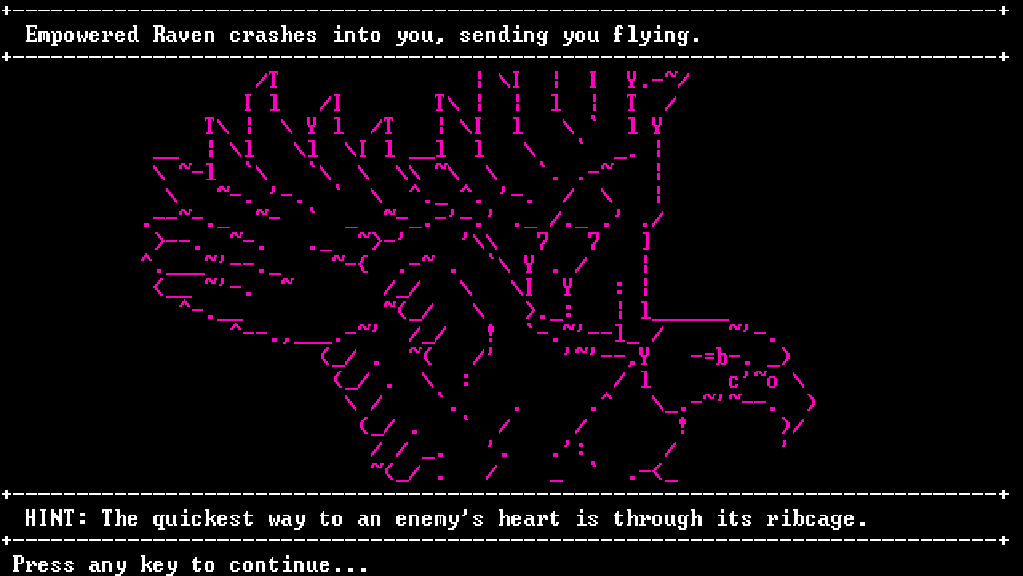
When I tell my family and friends that I’m producing games, they always reply: “Oh, you mean something like“ Call of Duty? ”. This is followed by an awkward conversation, during which they ask if I was working on something that they heard about, and I have to transfer my projects to some family member with a tight smile who, obviously feeling uncomfortable, will say “This is amazing ! ”And quickly change the subject.
Indie games, no matter how popular they become, still remain a pretty niche product. The average person doesn’t even know what “indie” means, not to mention any specific games (with the possible exception of Minecraft). Do not count on understanding when telling people what you are doing, unless you surround yourself exclusively with fellow developers and industry representatives.
You will definitely find support from friends (if not, then find other friends!), But here is another question for discussion: the feeling that what you are doing is not too valuable, because it is not popular. People are so fascinated by PewDiePie, who earns tens of millions of dollars, not because they really respect him, but because it is a bit confusing: how such a stupid pastime like YouTube can become a real career. It doesn’t matter how progressive a society is, niche communities (especially in the entertainment industry) remain only part of the overall effort until they take off.
Indie development is undoubtedly such a community. We have to work hard to get the attention of the press (although success stories like the story of Jonathan Blow, of course, help us a lot in this), but until the profession of indie developer is as respected as the profession of accountant or engineer We will continue to face some level of mistrust and ridicule. This must be understood and accepted by every developer. Of course, I feel bad when I tell a person who is not from the industry what I am doing and get a blank look or awkward questions, but when I meet other developers or players, I remember that all this is worth it. Make sure you have one too.

You can say that watching Jonathan Blow is inspiring, but you need to talk about feeling like a little fish in a huge ocean of indie games. If I am particularly pessimistic about a particular project, or feel a decline in energy, I will not be more comfortable reading success stories in attempts to regain hope.
Reading success stories has two possible consequences: either you are inspired and ready to work as the person you read about or even better, or it demotivates and you feel that you will never reach such a level.
Indie games are often characterized by the latter. Market oversaturation, increasing promotion requirements with Steam Greenlight, market-dominant AAA games releases ... Every developer once lost hope. Therefore, it is so important to be able to turn any situation into a source of inspiration, and not to let it demotivate you.
If you feel that you are not able to ever reach the level of developers like Rami Ismail, try not only to be upset, but also to learn something! Read about Rami Ismail (he's an amazing guy) and learn his way. What did he do? How did he do that? Where was it published? What makes his games work? How did he structure his team? It is very important to be able to learn, observing the success of others, and not to perceive it as a threat to unattainably high standards.
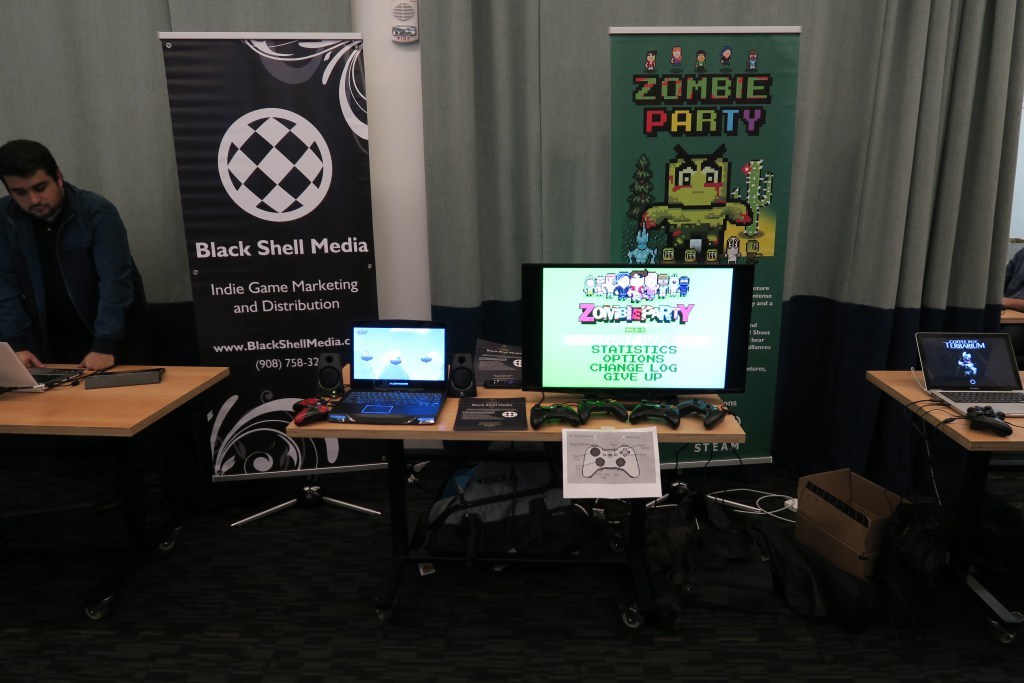
Most of the articles for indie developers that I see can fit in one simple phrase: for an indie developer it is vital to devote most of their time to managing and creating games. In the process of producing the game comes a lot of tasks: marketing, programming, design ... The list goes on and on.
When Daniel and I turned Black Shell Games into Black Shell Media, this was partly due to the fact that there were only two of us: juggling a million tasks would undoubtedly be impossible in the future. We wanted to direct our efforts to what we were good at - marketing and production. Thus, indie developers can come to us if they need help in trying to accomplish everything that is required of them.
If you are an indie developer, you have to face the fact that your to-do list will be insanely long. Extremely long. Almost impossibly long. How to deal with this is up to you. You can contact the agency that will be involved in marketing, expand your team, outsource tasks, hire consultants, automate processes, or simply try to do everything yourself. In any case, it will be difficult, and even if you have a team that performs all the tasks, you have to manage and deal with administrative and financial issues. Many tasks that seem to be simple separately become complex when they come together.
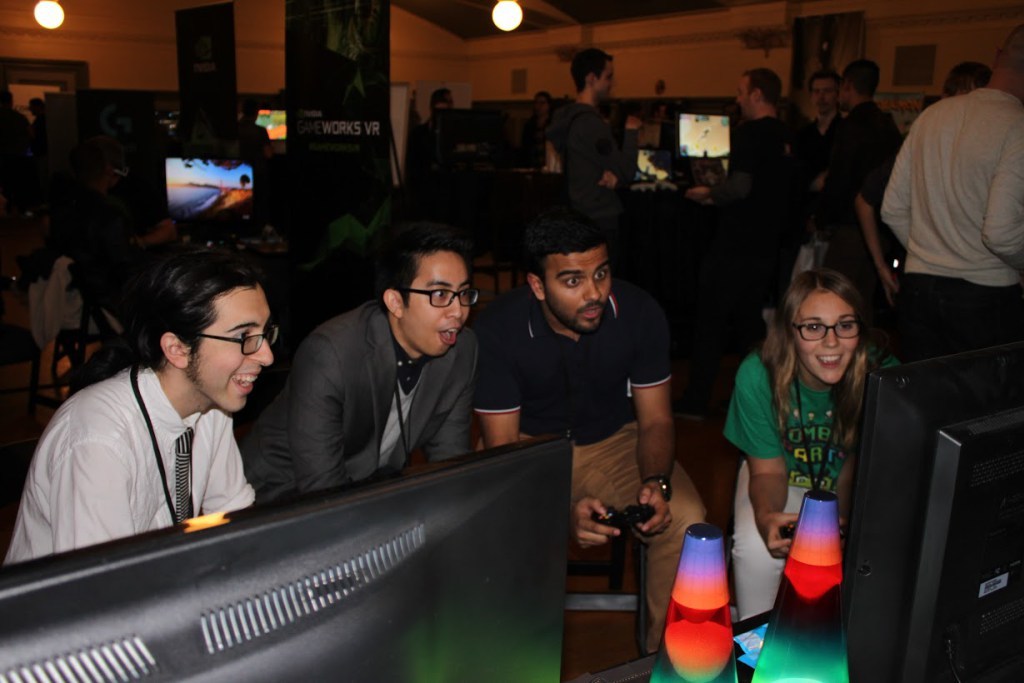
Do you know how many volunteers we recruited to work on the SanctuaryRPG after it first appeared on the Reddit homepage? Almost fifty. Do you know how many of them came with us to launch SanctuaryRPG: Black Edition on Steam? Six. Do not get me wrong - we definitely could not have done this without the contribution of each of those people. But most of our team consisted of students or even smaller children or people for whom this was not their main job. Their names are in the credits, because they really helped, but they could not be relied on and counted on like the backbone of our team.
For many people, indie development is a hobby, as it was for me when I started work on SanctuaryRPG. Not all people come to new projects with extreme optimism, especially at the very beginning of the process. If you do not have a salary team or unusual projects behind your back, or the ability to motivate people, you will have to feel for yourself how difficult it is to build a reliable team.
If I received one dollar for every volunteer who worked for a share of the future revenue that went from the race in any of our projects, I would have enough money to hire a full-time person who would complete all that work what they threw.
Trying to get people to invest enough time and energy into your project when they have a permanent job, study or other employment is very difficult. Be prepared to work with strange people and have a backup plan in case someone decides to quit. Programmers, be strict when it comes to commenting on code. The situation when the programmer leaves, leaving unassembled code, can destroy your project.
Conduct serious checks, make sure that you trust your team and maintain open communication. Use clear project management systems like Trello and remind people what they're working on. Make your people feel as involved as possible. Give them, especially artists and game designers, a little creative freedom so that they get inspired and take a new level of work.
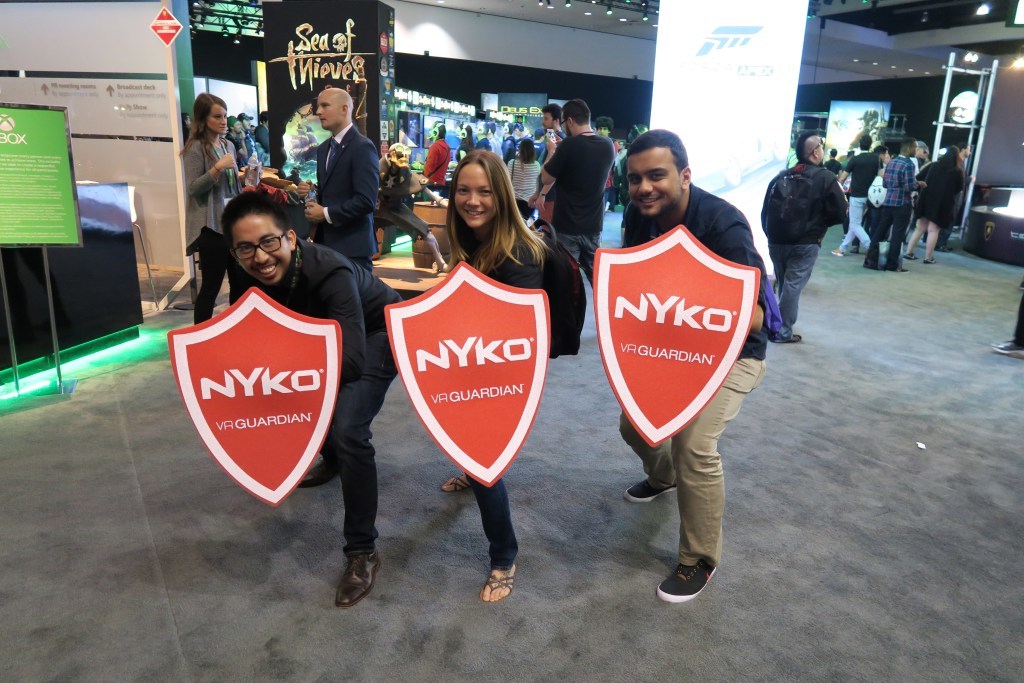
You may think that the development team on a successful project that makes money will be ultra-motivated, constantly working hard. That everything is getting better when everyone starts to receive a reward for their hard work. Unfortunately, that doesn't work like that. When a team starts making money, satisfaction comes into play. When you finally release the game after a long time unpaid work, the last thing everyone wants is to continue to work.
Many people set themselves the goal of developing a game release. But in reality, the ultimate goal should be the release of a successful product and the belief that its history after launch will remain as successful as at the time of release. You need to strive not just to sell the game once, but also to build a community around it and your brand.
You will be surprised how many developers are satisfied with their first pass test on Steam or the App Store. It seems to them that their work was done when they released the game, and they stop thinking about producing additional content or improvements. Make sure that you can stimulate the team to work in the long run and give them the understanding that the only way to continue to make money is to stay active even after the release.
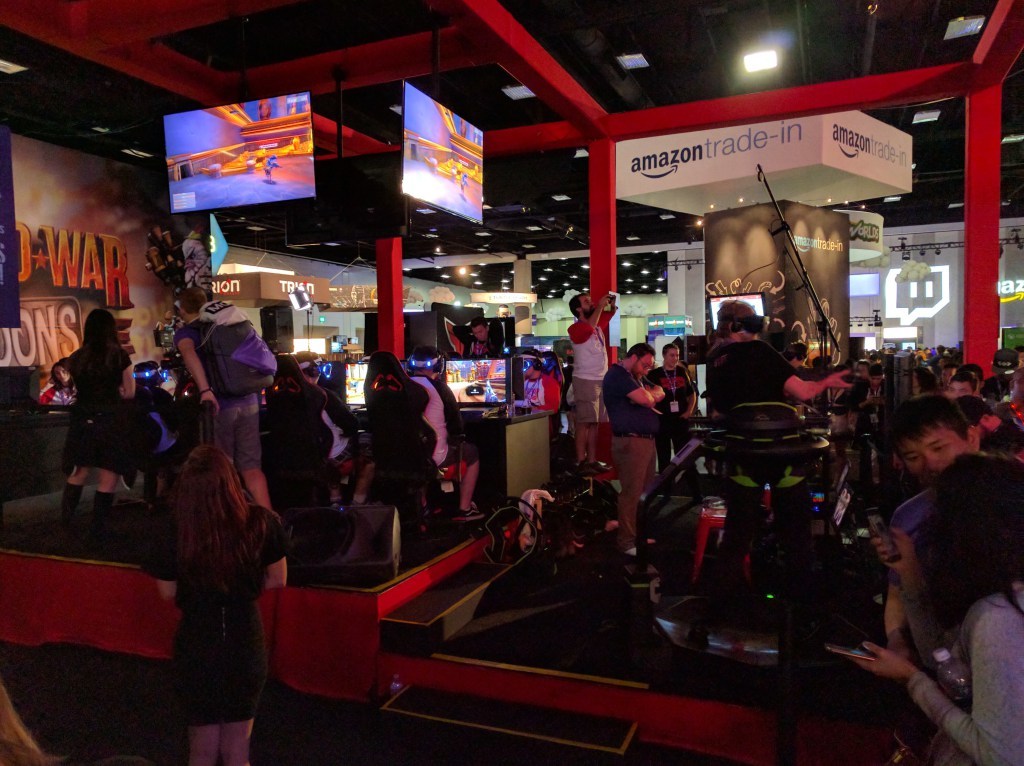
Developers have to deal with all the business tasks that can only be in this world: from tax returns to copyrights and issues of receiving money from the parties.
Many developers want to stay in their bubble, where there will be only programming and creativity and no thoughts about marketing or business commitments. It is in such cases that games fail to realize their potential (or have to close due to recorded fraud with taxes).
If you feel uncomfortable about your company’s business (yes, even as an indie developer, you are still a company. You are a company even if you are the only one), then hire someone who can help you with this. It doesn’t matter if it’s an accountant or a lawyer with whom you consult or a specially hired person in your team, you need to be sure that you not only fulfill business obligations, but also do analytics, pricing, sales, prepare profit and loss statements .
Even such a simple thing at first glance as pricing, in fact, is very serious, because it can make you sales or kill them. People study university pricing because it is an area related to data analysis. Many developers put a price tag on their game without doing any analysis. All questions from pricing to the texts of your letters are related to business and marketing.
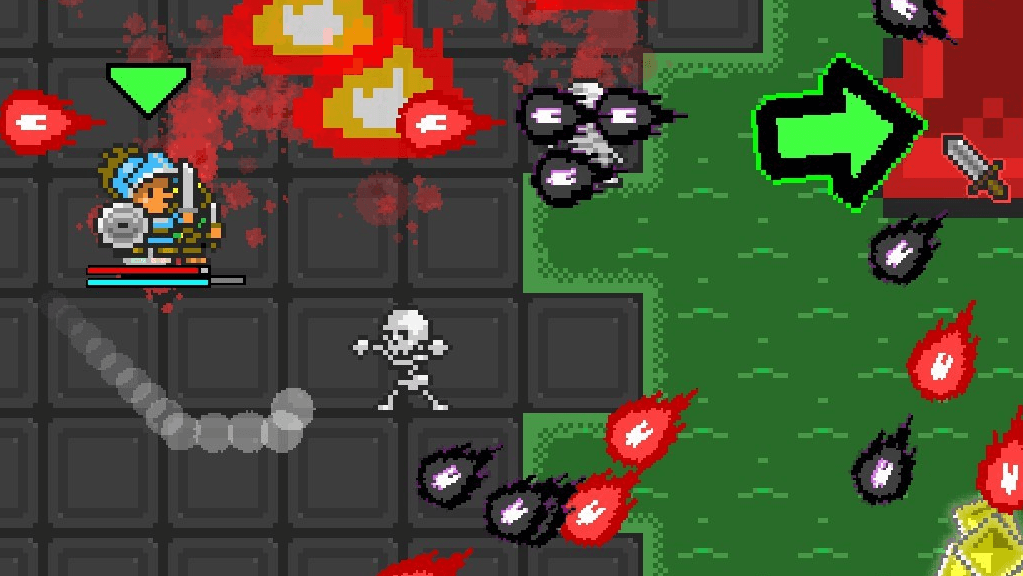
When planning to become an individual developer, do not forget that you are an entrepreneur not only in the formal sense, but also in terms of your thinking. You work independently of anyone, go your own way and create your own career. There is much that entrepreneurs should keep in mind.
From a formal point of view, starting your own game business, you can be an individual entrepreneur to return taxes. You can cover your expenses for work and life. You can also register an LLC (Limited Liability Company) or another type of company and, possibly, receive other bonuses and opportunities. Talk to an accountant and conduct your own research, as any entrepreneur would do. It doesn’t matter who you are: Facebook, Google or Alex from Minneapolis, you need to monitor your business operations and think about your tax obligations and opportunities.
Speaking of thoughts, you should think like “traditional” entrepreneurs. People like Elon Musk or Mark Zuckerberg must have gone through the difficulties that indie developers face: trying to get results with a low or zero budget, deciding on a positioning, marketing strategy, the need to motivate people working for free ... We have more in common with startups than we think!
Listen to famous entrepreneurs. Stories about how people solved their problems and turned difficult situations into opportunities for growth are very motivating.

It seems to me that everything that I wrote sounds as if the development of games is a complete mess consisting of managing people and filling out tax returns. This is true. I'm not trying to embellish something, I myself had to go through all this over the past three years. The only thing I did not tell you: in spite of all these long hours, low pay and strange people, I would not change anything.
When we started publishing SanctuaryRPG posts and eventually released the game on Steam, the feedback we received from people who loved the game was awesome. One Steam user left us a review: “the perfect game to play while you cook dinner for children (I’m not joking, I installed a computer in my kitchen bench to kill monsters between slicing vegetables and boiling pasta, while the time my daughters shout to me: “NERD!” from the living room. ”They write that SanctuaryRPG“ is the only ray of light in the middle of a tiring day. ”When I first read this, I almost cried with happiness.
Each person who buys SanctuaryRPG on Steam - not only increases our numbers, each of them devotes a certain amount of time of his life to play my game. These people could devote their day to anything, but they choose to spend time on what I have created. And after that, they decide to spend time also writing to me that they are very happy that they have chosen our game, that they are going to support us further and tell their friends about the game.
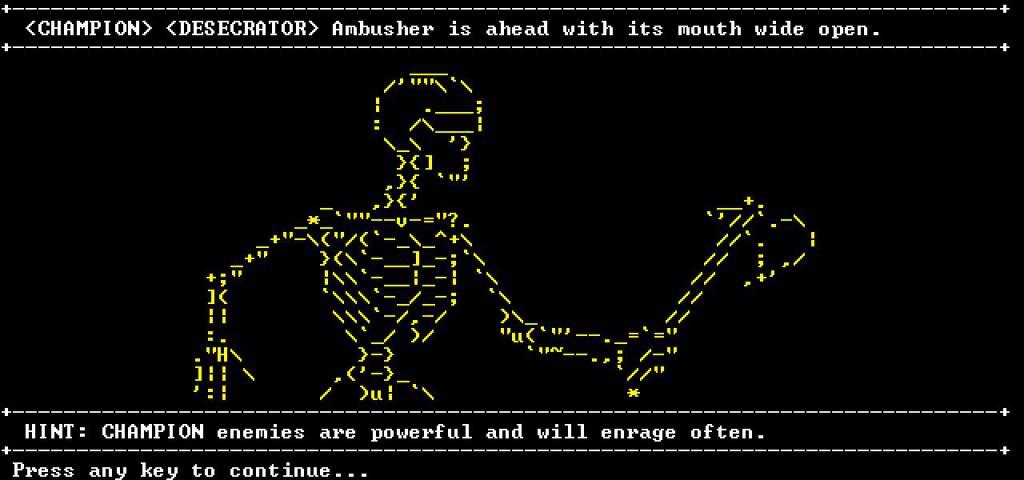
Watching the community grow around the game, hearing feedback from journalists, video bloggers and fans is the best reward for me. When I started working on SanctuaryRPG, I could not even think that I was making a game that would become popular. It seemed to me that people would say: “well done well” and go on. I never thought that I would become partially responsible for someone who would spend tens of hours exploring the world and killing monsters.
If you ever feel a breakdown and fear of creating a game, just remember that games exist to help people relax and feel joy and excitement, sadness and fear. Spend a huge amount of time without money, rewards and recognition? It sounds exhausting and demotivating. To get an opportunity to become the cause of someone's joy and excitement? Absolutely priceless.
Keep creating. And thanks for reading.
We hope the article was interesting and useful for you. Soon we will post new translations, but for now we are inviting you to our free offline game dev events. In particular, this Saturday there will be a master class on working in the gaming industry , and by the end of the month an open lecture with an overview of the gaming market .
All the best to you and see you soon.

9 nuances in the work of an indie developer, which no one told me about
When Daniel and I started working on SanctuaryRPG, I had no idea what it means to be an indie game producer. Honestly, I don’t think any of our team suggested that SanctuaryRPG would ever be anything more than a multi-download hobby project. Three years, one hundred thousand lines of code, two publications in the Hunble Bundle set and five hundred thousand downloads later, I can say with confidence that we were wrong.
Every developer has the potential for success. Many people, looking at influential opinion leaders such as, for example, Rami Ismail (Nuclear Throne, Luftrausers) and Jonathan Blow (Braid, The Witness), think that developing indie games is an awesome activity: you start working on video games and making millions of dollars. Sounds easy and fun, huh? But this is not at all true.
Well, not really. You start working on video games, and if you work hard, you will probably make millions of dollars. Maybe. Between stages called “I want to make a video game” and “I am going to invest the profits from my fifth game into the sixth” a lot of work is going on that people do not realize. Many blog posts have been written about the difficulties of programming, the need for testing and the importance of marketing. In this article I want to talk about several other aspects of the profession - nine, to be precise - that are not often talked about. I hope that you draw something for yourself from my observations, regardless of whether you are a novice developer, seeking advice or an experienced nostalgic veteran.

1: You will have to work for a long time without any reward
Daniel and I started working on the project and spent 400 hours on it. Here is what we have achieved after these hours:
- We made a primitive landing
- Gathered a team and gave the task to start developing the creative part
- Prepared a number of sketches
- They created a primary prototype in which you could move around with the bot that follows you
- Hired a new programmer
- This programmer fell off
- We realized that we did not have the resources to continue and froze the project
That is all we have done. For 400 hours. Four hundred hours. If you work from Monday to Friday from 9:00 to 17:00, it will take 10 weeks. This is more than three months of work. And all we could show was a landing and a skeleton in a crude prototype. If we continued to work on the project, then perhaps we would have to wait another 3 to 6 months before we would receive the game, and about 6-12 months before it began to make money.
You will have to admit this fact: programming is very difficult. Especially programming in games. If you are working on a larger project, with a time frame of 12-18 or more months, do not wait too soon for playable demos that also look beautiful. Concept development, team building, organization, programming, rendering, game design and marketing - all this takes a lot of time. When planning to make an indie game, you should have an idea of how it should turn out at the end of the full development cycle. If you do not have what you can rely on, which makes you remain motivated to the end, you will inevitably burn out.
Man needs instant rewards. When a reward is set aside for months or years, it goes against our natural desires, and it is very difficult to fight innate instincts. Working on shorter projects or projects where you can create a prototype very quickly will allow you to see the fruits of your labor faster and more often. Watching how the game is going before your very eyes motivates an indie developer. Observing a pile of lines of code, while not having anything that could be shown, is not so motivating.
The ability to feel comfortable on a long-term project and stay motivated throughout the process will allow you to finish work on an indie game.

2: No one will take seriously what you do
When I tell my family and friends that I’m producing games, they always reply: “Oh, you mean something like“ Call of Duty? ”. This is followed by an awkward conversation, during which they ask if I was working on something that they heard about, and I have to transfer my projects to some family member with a tight smile who, obviously feeling uncomfortable, will say “This is amazing ! ”And quickly change the subject.
Indie games, no matter how popular they become, still remain a pretty niche product. The average person doesn’t even know what “indie” means, not to mention any specific games (with the possible exception of Minecraft). Do not count on understanding when telling people what you are doing, unless you surround yourself exclusively with fellow developers and industry representatives.
You will definitely find support from friends (if not, then find other friends!), But here is another question for discussion: the feeling that what you are doing is not too valuable, because it is not popular. People are so fascinated by PewDiePie, who earns tens of millions of dollars, not because they really respect him, but because it is a bit confusing: how such a stupid pastime like YouTube can become a real career. It doesn’t matter how progressive a society is, niche communities (especially in the entertainment industry) remain only part of the overall effort until they take off.
Indie development is undoubtedly such a community. We have to work hard to get the attention of the press (although success stories like the story of Jonathan Blow, of course, help us a lot in this), but until the profession of indie developer is as respected as the profession of accountant or engineer We will continue to face some level of mistrust and ridicule. This must be understood and accepted by every developer. Of course, I feel bad when I tell a person who is not from the industry what I am doing and get a blank look or awkward questions, but when I meet other developers or players, I remember that all this is worth it. Make sure you have one too.

3: You will always feel that you are not good enough
You can say that watching Jonathan Blow is inspiring, but you need to talk about feeling like a little fish in a huge ocean of indie games. If I am particularly pessimistic about a particular project, or feel a decline in energy, I will not be more comfortable reading success stories in attempts to regain hope.
Reading success stories has two possible consequences: either you are inspired and ready to work as the person you read about or even better, or it demotivates and you feel that you will never reach such a level.
Indie games are often characterized by the latter. Market oversaturation, increasing promotion requirements with Steam Greenlight, market-dominant AAA games releases ... Every developer once lost hope. Therefore, it is so important to be able to turn any situation into a source of inspiration, and not to let it demotivate you.
If you feel that you are not able to ever reach the level of developers like Rami Ismail, try not only to be upset, but also to learn something! Read about Rami Ismail (he's an amazing guy) and learn his way. What did he do? How did he do that? Where was it published? What makes his games work? How did he structure his team? It is very important to be able to learn, observing the success of others, and not to perceive it as a threat to unattainably high standards.

4: Doing everything is really hard
Most of the articles for indie developers that I see can fit in one simple phrase: for an indie developer it is vital to devote most of their time to managing and creating games. In the process of producing the game comes a lot of tasks: marketing, programming, design ... The list goes on and on.
When Daniel and I turned Black Shell Games into Black Shell Media, this was partly due to the fact that there were only two of us: juggling a million tasks would undoubtedly be impossible in the future. We wanted to direct our efforts to what we were good at - marketing and production. Thus, indie developers can come to us if they need help in trying to accomplish everything that is required of them.
If you are an indie developer, you have to face the fact that your to-do list will be insanely long. Extremely long. Almost impossibly long. How to deal with this is up to you. You can contact the agency that will be involved in marketing, expand your team, outsource tasks, hire consultants, automate processes, or simply try to do everything yourself. In any case, it will be difficult, and even if you have a team that performs all the tasks, you have to manage and deal with administrative and financial issues. Many tasks that seem to be simple separately become complex when they come together.

5: People behave strangely, especially if there is no money in your relationship
Do you know how many volunteers we recruited to work on the SanctuaryRPG after it first appeared on the Reddit homepage? Almost fifty. Do you know how many of them came with us to launch SanctuaryRPG: Black Edition on Steam? Six. Do not get me wrong - we definitely could not have done this without the contribution of each of those people. But most of our team consisted of students or even smaller children or people for whom this was not their main job. Their names are in the credits, because they really helped, but they could not be relied on and counted on like the backbone of our team.
For many people, indie development is a hobby, as it was for me when I started work on SanctuaryRPG. Not all people come to new projects with extreme optimism, especially at the very beginning of the process. If you do not have a salary team or unusual projects behind your back, or the ability to motivate people, you will have to feel for yourself how difficult it is to build a reliable team.
If I received one dollar for every volunteer who worked for a share of the future revenue that went from the race in any of our projects, I would have enough money to hire a full-time person who would complete all that work what they threw.
Trying to get people to invest enough time and energy into your project when they have a permanent job, study or other employment is very difficult. Be prepared to work with strange people and have a backup plan in case someone decides to quit. Programmers, be strict when it comes to commenting on code. The situation when the programmer leaves, leaving unassembled code, can destroy your project.
Conduct serious checks, make sure that you trust your team and maintain open communication. Use clear project management systems like Trello and remind people what they're working on. Make your people feel as involved as possible. Give them, especially artists and game designers, a little creative freedom so that they get inspired and take a new level of work.

6: People behave strangely, especially if there is money in your relationship
You may think that the development team on a successful project that makes money will be ultra-motivated, constantly working hard. That everything is getting better when everyone starts to receive a reward for their hard work. Unfortunately, that doesn't work like that. When a team starts making money, satisfaction comes into play. When you finally release the game after a long time unpaid work, the last thing everyone wants is to continue to work.
Many people set themselves the goal of developing a game release. But in reality, the ultimate goal should be the release of a successful product and the belief that its history after launch will remain as successful as at the time of release. You need to strive not just to sell the game once, but also to build a community around it and your brand.
You will be surprised how many developers are satisfied with their first pass test on Steam or the App Store. It seems to them that their work was done when they released the game, and they stop thinking about producing additional content or improvements. Make sure that you can stimulate the team to work in the long run and give them the understanding that the only way to continue to make money is to stay active even after the release.

7: There is more business here than you think
Developers have to deal with all the business tasks that can only be in this world: from tax returns to copyrights and issues of receiving money from the parties.
Many developers want to stay in their bubble, where there will be only programming and creativity and no thoughts about marketing or business commitments. It is in such cases that games fail to realize their potential (or have to close due to recorded fraud with taxes).
If you feel uncomfortable about your company’s business (yes, even as an indie developer, you are still a company. You are a company even if you are the only one), then hire someone who can help you with this. It doesn’t matter if it’s an accountant or a lawyer with whom you consult or a specially hired person in your team, you need to be sure that you not only fulfill business obligations, but also do analytics, pricing, sales, prepare profit and loss statements .
Even such a simple thing at first glance as pricing, in fact, is very serious, because it can make you sales or kill them. People study university pricing because it is an area related to data analysis. Many developers put a price tag on their game without doing any analysis. All questions from pricing to the texts of your letters are related to business and marketing.

8: You are an entrepreneur and must behave accordingly
When planning to become an individual developer, do not forget that you are an entrepreneur not only in the formal sense, but also in terms of your thinking. You work independently of anyone, go your own way and create your own career. There is much that entrepreneurs should keep in mind.
From a formal point of view, starting your own game business, you can be an individual entrepreneur to return taxes. You can cover your expenses for work and life. You can also register an LLC (Limited Liability Company) or another type of company and, possibly, receive other bonuses and opportunities. Talk to an accountant and conduct your own research, as any entrepreneur would do. It doesn’t matter who you are: Facebook, Google or Alex from Minneapolis, you need to monitor your business operations and think about your tax obligations and opportunities.
Speaking of thoughts, you should think like “traditional” entrepreneurs. People like Elon Musk or Mark Zuckerberg must have gone through the difficulties that indie developers face: trying to get results with a low or zero budget, deciding on a positioning, marketing strategy, the need to motivate people working for free ... We have more in common with startups than we think!
Listen to famous entrepreneurs. Stories about how people solved their problems and turned difficult situations into opportunities for growth are very motivating.

9: You can’t even imagine how much it costs to try
It seems to me that everything that I wrote sounds as if the development of games is a complete mess consisting of managing people and filling out tax returns. This is true. I'm not trying to embellish something, I myself had to go through all this over the past three years. The only thing I did not tell you: in spite of all these long hours, low pay and strange people, I would not change anything.
When we started publishing SanctuaryRPG posts and eventually released the game on Steam, the feedback we received from people who loved the game was awesome. One Steam user left us a review: “the perfect game to play while you cook dinner for children (I’m not joking, I installed a computer in my kitchen bench to kill monsters between slicing vegetables and boiling pasta, while the time my daughters shout to me: “NERD!” from the living room. ”They write that SanctuaryRPG“ is the only ray of light in the middle of a tiring day. ”When I first read this, I almost cried with happiness.
Each person who buys SanctuaryRPG on Steam - not only increases our numbers, each of them devotes a certain amount of time of his life to play my game. These people could devote their day to anything, but they choose to spend time on what I have created. And after that, they decide to spend time also writing to me that they are very happy that they have chosen our game, that they are going to support us further and tell their friends about the game.

Watching the community grow around the game, hearing feedback from journalists, video bloggers and fans is the best reward for me. When I started working on SanctuaryRPG, I could not even think that I was making a game that would become popular. It seemed to me that people would say: “well done well” and go on. I never thought that I would become partially responsible for someone who would spend tens of hours exploring the world and killing monsters.
If you ever feel a breakdown and fear of creating a game, just remember that games exist to help people relax and feel joy and excitement, sadness and fear. Spend a huge amount of time without money, rewards and recognition? It sounds exhausting and demotivating. To get an opportunity to become the cause of someone's joy and excitement? Absolutely priceless.
Keep creating. And thanks for reading.
We hope the article was interesting and useful for you. Soon we will post new translations, but for now we are inviting you to our free offline game dev events. In particular, this Saturday there will be a master class on working in the gaming industry , and by the end of the month an open lecture with an overview of the gaming market .
All the best to you and see you soon.
